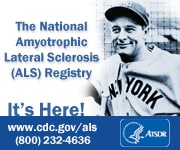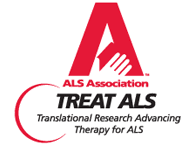
2004 Flint Journal
GENESEE TOWNSHIP
THE FLINT JOURNAL FIRST EDITION
Saturday, March 27, 2004
By Helen S. Bas
Power Of Positive Thinking And Prayer Helps Woman With ALS
When Wendy Moore thinks about the past three years, she remembers pain, fear and the specter of dying young.
Today, the 30-year-old working mother of two young boys is grateful, happy and certain that prayer and positive thinking spared her from a deadly disease that medical science can't yet stave off.
In 1998, Moore and her husband, Steve, had just had their first child, Jacob. Moore was working at the Genesee County 911 Communications Center and was a paramedic. She began to notice weakness in her legs. Soon she experienced difficulty lifting patients, climbing stairs and getting up from the floor.
More than a year of testing revealed nothing specific, and Moore had just given birth to Zachary when her doctors sent her to the University of Michigan Medical Center in Ann Arbor. There, after several visits to specialists and numerous medical tests, Moore was told she had Amyotrophic Lateral Sclerosis (ALS), also known as Lou Gehrig's disease.
Moore was told there is no cure or treatment, and that her life expectancy was two to five years. The young mother and her family were devastated. Moore's mother, Jan Charchan of Genesee Township, was stunned.
"We ached with pain for the burden she had to carry," she said. "Our despair was unbelievable."
Moore hardly could believe the diagnosis. "I literally could not function," she said. "I cried day and night."
Moore's father, Dave Charchan, said the diagnosis was so horrific that the family couldn't believe it.
After the initial shock, Moore had to decide how to handle the news. She was told she could apply for disability benefits, and went through the application process. Ultimately, she rejected the idea of disability and decided she was going to use the power of prayer to beat the disease.
Moore's family always had been spiritual and believed in prayer and positive thinking. They asked their church members to pray for Moore and began praying together every day.
"We had faith and believed that God would take care of this," Moore said. "we do know there are miracles and so believed there was hope for me."
Still, she didn't abandon traditional medical treatment or the advice of her doctors. She tried an ALS drug, but stopped it because of severe side effects and because it didn't appear to be helping. She took vitamins and some supplements, too.
She continued regular visits to her doctors at U-M and continued to work full time. The family continued praying. Moore didn't let her disease stop her from enjoying life, although she was scared to death before each medical visit.
Soon, the news from the doctors began to be less bad, then downright good.
"At first, they would tell me there was no change, which was good by itself," Moore said. "Then they said I was doing so well I could come back in six months instead of three."
After a time, Moore's faith was growing and she wasn't falling as much, but she still thought about her disease every day. She was doing so well that the time between medical appointments increased. In August 2003, she was told to come back in a year. Then, in September, she received a call from her doctor.
"They asked if I would have a repeat EMG (nerve conduction test)," she said. "I did, and they said there was no evidence of ongoing nerve death."
What this meant, Moore said, was that she did not, at that time, have ALS.
"When they told me that, I just lost it," she said. "I couldn't believe it. I cried for 10 minutes, then called in my family."
While the doctors have no explanation for Moore's change in diagnosis, many, like Moore and her family, believe that prayer and positive thinking can affect health. Judie Book, a registered nurse at Community Home Health and Hospice in Flint Township, believes that prayer and positive thinking can have an affect on the course of disease.
"I was diagnosed with Multiple Sclerosis more than 10 years ago," Book said. "Along with the medical treatments, I went to healing masses and prayed. Studies have shown that prayer helps, even when the person doesn't know people have been praying for him.
"I can't discount a miraculous experience. Our bodies have to be in balance, and spirituality gives balance. I don't advise stopping medical treatment; it takes a balance of it all."
Moore said her faith has grown as a result of her medical situation. The family continues to pray together every day; if they're separated, they do it by phone. She thinks her disease was a stumbling block that she was able overcome.
"Life is awesome. Because I kept working and taking care of my boys I feel I didn't miss a beat," Moore said. "I still have a little muscle weakness, but it's not bad and even if it doesn't ever get any better, it's just fine.
"I think it's mind over matter. I've always asked God to give me strength, and mental attitude is a big thing. We believe in the power of prayer. Before, I had a death sentence, and there's no other explanation for what happened. I have my life back."










1 comment:
This is the path of the religious faithful as it concerns terminal illness while it's self-important core values block science at every juncture. These people of faith seem convinced that prayer can heal a wide variety of illnesses (despite what the best scientific research indicates), it is curious that prayer is only ever believed to work for illnesses and injuries that can be self-limiting. Can an amputee be healed through faith and prayer? There happens to be a real problem with this religious theatrical sideshow. I have a niece that lost your battle to breast cancer last year. Like Wendy she was young, a mother of two little ones and had a prayer chain that stretched miles across the United States. There is an estimate that the New Testament holds approximately 18,000 positive explanations sorted by endless religious propositions to confirm these oddities. I really would like to know how God chooses one life over the other. As this pertains to ALS, there is no answer, there is no answer to any of this.
Post a Comment